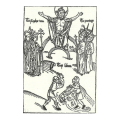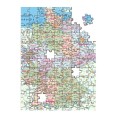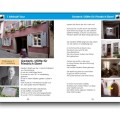In the textbook “Geschichte und Geschehen” the term “mass deportations to Polish camps” is erroneously used in the chapter about the Holocaust. The knowledge of the textbook’s authors, editors and teachers has thus been called into question.
Tag Archive for ‘Textbook (Schulbuch)’
Using Multiperspectivity to Break through Eurocentrism
Eurocentrism in history education refers to two things: 1. a curriculum especially paying attention to European history, and 2. (Western)…
Value Neutrality? Repression of a Crucial Question
For Western historiography and with it the descriptive parts of history textbooks have to be sine ira et studio nowadays. Value neutrality is a necessary prerequisite for history as a science.
Why We Still Need Textbook Commissions?
In general, textbook commissions reflect the needs of their times. In the past, they quite successfully served their purpose of mediating between politics, research, and teaching. They played a highly relevant role in the international dialogue
Hitler: Personalisation in Historical Representation and No End
Who exactly acts in the past and in history? Is it solely the rulers or is Bert Brecht’s literary critique in his poem “Questions from a worker who reads” as necessary today as it was in 1935? It seems that in the classroom a reductive and a balanced …
Die Lehnspyramide – ein Wiedergänger des Geschichtsunterrichts
Abstract: Der 1998 verstorbene Mediävist Hartmut Boockmann hat 1992 in der GWU einen Topos der Mittelalterdarstellungen in den Schulbüchern dekonstruiert: die Lehnspyramide. Seine Kritik richtete sich gegen die zahlreichen… Read More ›
Von den Mühen der Regionalisierung
Abstract: Das Bildungswesen ist bekanntlich eine beliebte Spielwiese der Politik. “Bologna” und “G 8” lauten die Chiffren für die beiden jüngsten großen Reformvorhaben; selten, vielleicht überhaupt noch nie in… Read More ›
Inklusion konkret: Heidelberg in Leichter Sprache
Abstract: “Heidelberg in Leichter Sprache” ist ein Stadtführer für Menschen, die Bilder und kurze Texte bevorzugen, also z.B. ältere Menschen, Kinder, Personen mit Deutsch als Zweitsprache oder Menschen mit… Read More ›







